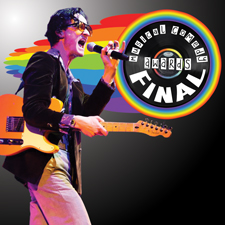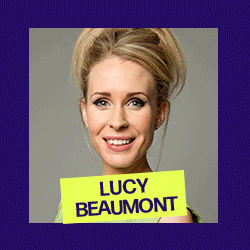
6. What do your parents think of your job?
They have a mixture of bemused resignation and genuine pride. I have managed to convince them that my “Best Club Comic” Chortle Award was a meritocratic and entirely justified assessment of my comedic worth, and they have repeated this myth to the entire Bengali community. So all is good for now.
7. What’s the worst thing about being a comedian?
I used to have a social life involving actual friends, who had shared values, experiences and anecdotes which we would drunkenly relate in bars and pubs and late night Chinese restaurants. I really, really miss my friends.
8. I think you are very good at what you do (that’s why I’m asking these questions). What do you think of you?
I’m much better than I ever dreamt that I would be. I nonetheless look at my favourite comedians with a great deal of envy. I consider myself a constant work in progress, someone who has belied a lack of innate performance ability to write lovingly crafted jokes and routines, some of which are really good. I have had a weird and eventful life, and I think that I am pretty good at presenting the heavily edited highlights in a warm and entertaining manner. There will always be those who think that my ethnicity and sexuality have given me an unfair advantage. With respect, they have no idea.
9. How much do you earn and how much would you like to earn? .
I am certainly not going to put a figure on it. But I now earn enough that for some train journeys, if it is not too overpriced, I am able to buy one of those posh scotch eggs for the journey. As for what I would like to earn, whatever amount that will eventually get me to travel to Brazil without worrying about the cost.
10. How important is luck in terms of career success – have you had lucky breaks?
Comedy is a partial meritocracy. A lot of the cream rises to the top, a lot of it never catches a break. Big agencies have never wielded more power and influence over who gets on telly, and for those of us not with big agencies, hard work and finger crossing remain the only options. Personally, I can have no complaints. In 1998 an agent watched my first open spot at the Comedy Store and handed me the possibility of a comedy career. In 2006, a bunch of people at Edinburgh sat down and decided that they would hand me an if.comedy nomination and a massive career boost. Without these two massive pieces of luck, I might just be still misdiagnosing eczema.
11. Alan Davies has said that comedians fall into two categories - golfers and self-harmers. The former just get on with life, the latter are tortured artists. Which are you – or do you think you fit into a third category?
I’m neither a golfer nor a self harmer, though I am perfectly capable of visiting both camps. Comedy could not be any more diverse these days, and I don’t think a crude generalisation of personality types really works any more. I’m broadly a cheerful optimist, who knows he has caught some breaks, and failed to catch some others. Every time I ever veer towards “tortured artist”, I remind myself that I have wonderful friends and family, and a job that I love. But happiness doesn’t always make for great comedy, so you try and convince yourself that your soul is a little more tortured than it actually is, for the purposes of creativity. Woe is me.
12. Who is your favourite person ever and why - not including family or friends or other comedians?
I’m obsessed with Andy Murray. He has none of the conventional handsomeness and ebullient personality that would make a marketing man salivate. He is, however, by far the greatest British tennis player ever. And despite never earning the love of an ungrateful public, he simply continues his quest for self-improvement, while overweight, lazy buffoons still moan about a football joke he once made in 2006. Instead of playing the “tortured artist”, constantly wondering why his amazing achievements go underappreciated, he is content to express himself through being brilliant at his job. I absolutely aspire to that.





